Foundations of Fundraising
WWF integrated legacy marketing campaign
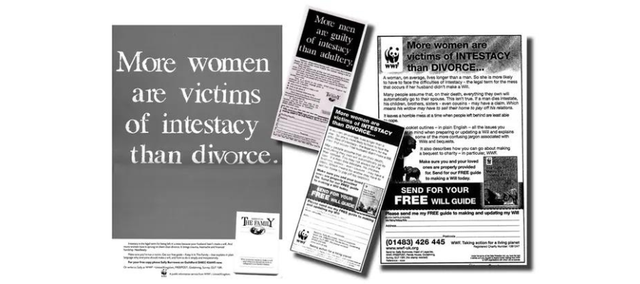
by SOFII
This is truly ground-breaking communication for fundraising. Not only did these press advertisements and posters herald a new approach to the promotion of legacies (bequests) but they were also the first ads to use jargon-free language and to talk about legacies in plain, everyday terms that any one could understand.
Read moreGreenpeace Australia: The legacy beer mat
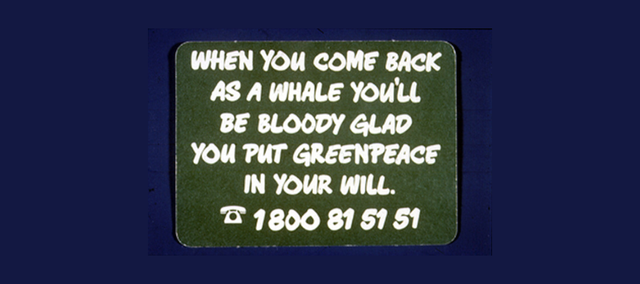
by SOFII
The copy you see above is a line that every writer wishes he or she had written. If half the challenge with legacy marketing is how do you raise the delicate subject with donors, then this brilliant promotion hits every button perfectly. Without doubt, it is a fundraising classic. But did it actually generate many bequests? Click to find out...
Multiple Sclerosis Society, Holland: television commercial
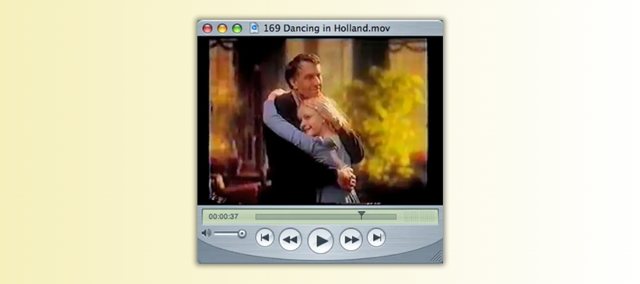
by SOFII
This remarkable television commercial is so powerful it stops the viewer in his/her tracks. Yet not a word is spoken, the message is entirely conveyed in movements, gestures and looks. This a brilliant use of television, a courageous creative presentation of the personal impact of a devastating disease. It will be instructive for anyone working in a similar field and many others too.
Read moreRSPCA’s ‘sow tethering’ telephone campaign

by SOFII
Any marketing campaign that can have such an impact on members of parliament on the eve of taking their country to war has to be worth recording. This campaign is notable as one of the early UK examples of fundraisers using the telephone.
Read moreTHE PLAN: the launch of child sponsorship, Spain 1937
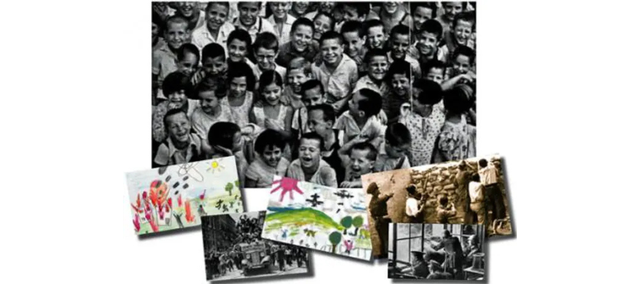
by SOFII
This exhibit focuses on a documentary film made by Plan International, which shows how the idea of child sponsorship emerged and grew as a response to the dangers faced by children in the Spanish civil war, more than 70 years ago.
Read moreHarold Sumption, Guy Stringer, CBE and Sir Leslie Kirkley, CBE
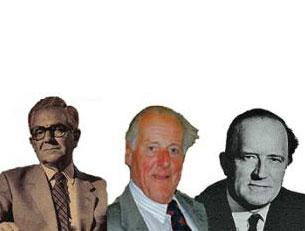
by George Smith
A profile of Britain’s founding fathers of modern fundraising
Read moreSome closing remarks: more on fundraising legend Guy Stringer
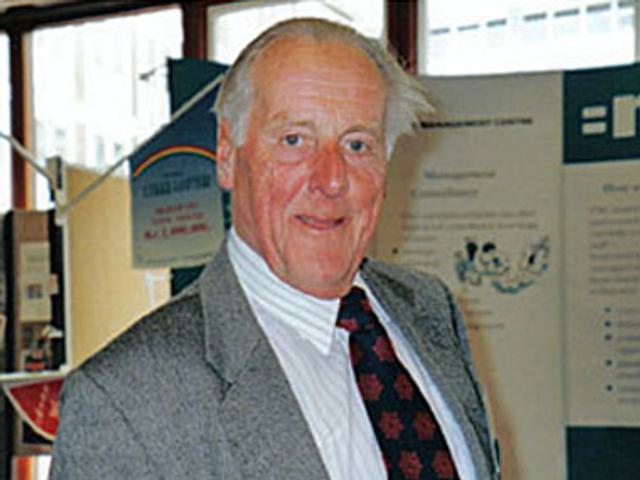
by Ken Burnett
For many years the closing remarks at the International Fund Raising Congress (the gathering of professional fundraisers from around the world that takes place each year outside Amsterdam, in the Netherlands) were delivered by Guy Stringer, formerly director of Oxfam, one-time senior executive with a major manufacturing company and now one of fundraising's most eminent and respected gentlemen.
Read moreThe 11 pillars of fundraising wisdom – plus the five assumptions that underpin effective fundraising

by Ken Burnett
In this noisy, brash and insincere world, how can fundraisers and their organisations stand out and be understood when much of the ground we would occupy is not our exclusive preserve? Indeed, our traditional territory tends to be crowded with other occupants who also posture, to the same audiences we wish to inspire, as ‘socially concerned’ and ‘worthwhile’, so we nonprofits have to struggle to be distinctive and different.
Read moreAmnesty International UK: press ads that shook a nation
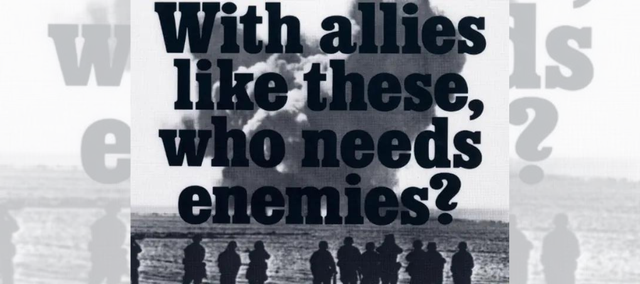
by SOFII
These ads changed the political shape of Britain, raised social consciousness generally as well as concerns for human rights in particular.We do not have all the details about this campaign but SOFII decided to showcase it because we believe that every fundraiser wherever he or she works should be familiar with these ads and what they achieved.
Read moreUNICEF: the card that launched UNICEF’s fundraising
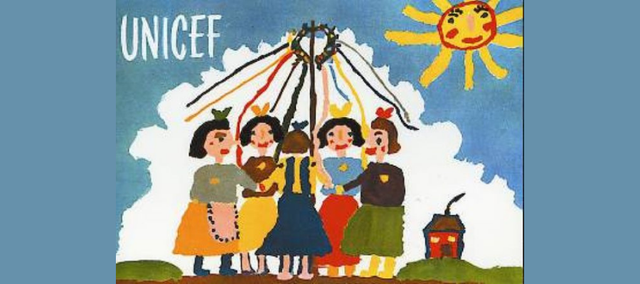
by SOFII
UNICEF's very first ever Christmas card would lead to the multi-million dollar international business that is UNICEF's cards today.
Read moreHelp The Aged: ‘make a blind man see’ press advertisement
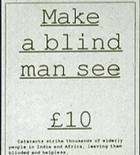
by Ken Burnett
This ad is a classic. Created by the legendary Harold Sumption in the late 1970s, it embodies one of the most direct and hard-to-resist fundraising propositions, ‘Make a blind man see’. It is a brilliant example of fundraising communication at its best.
Read more







